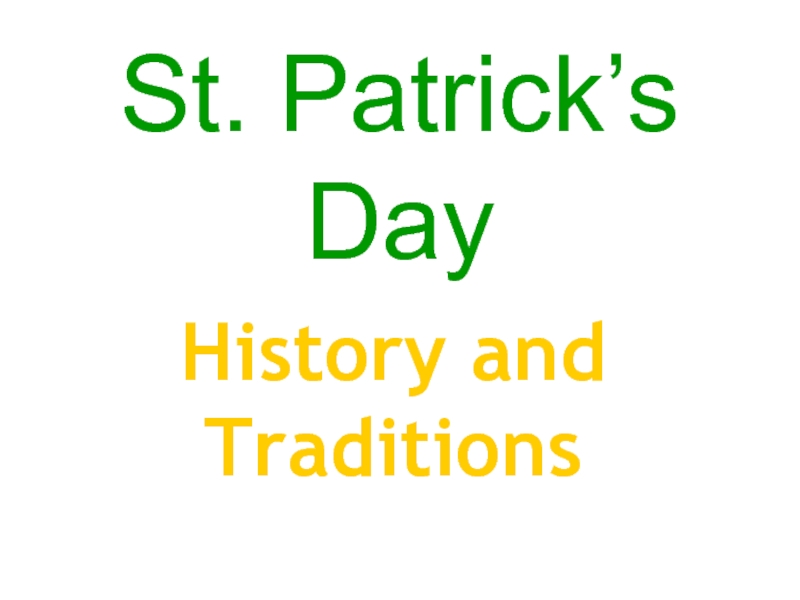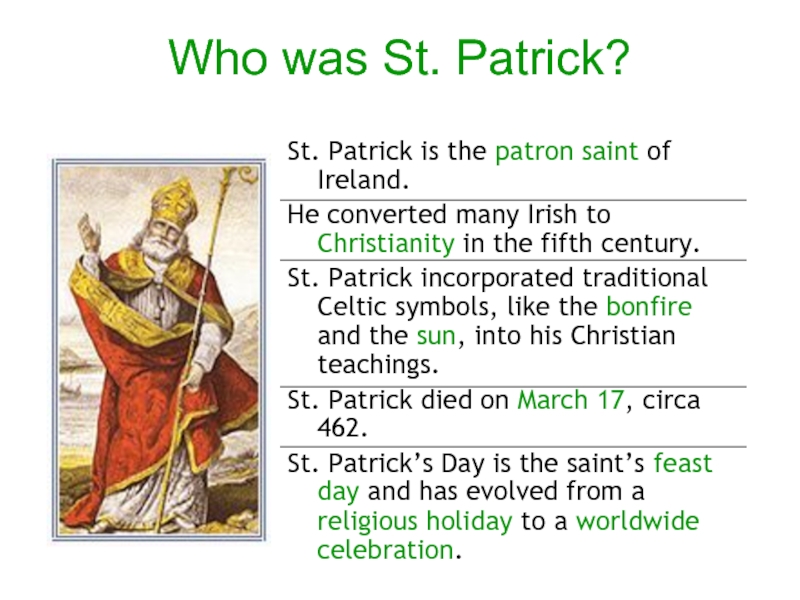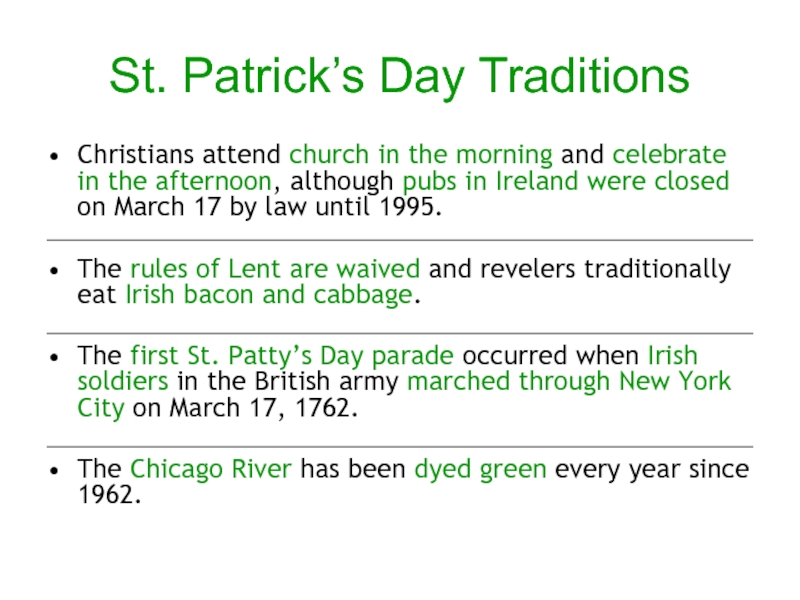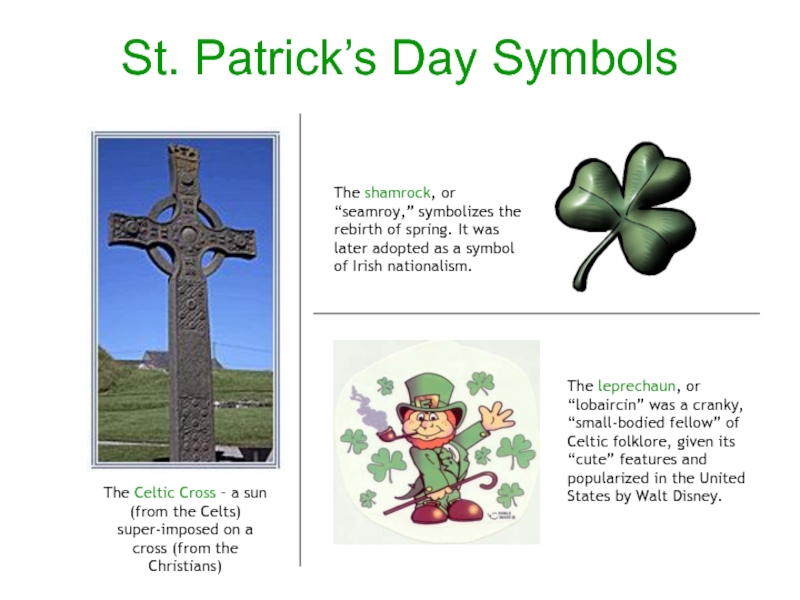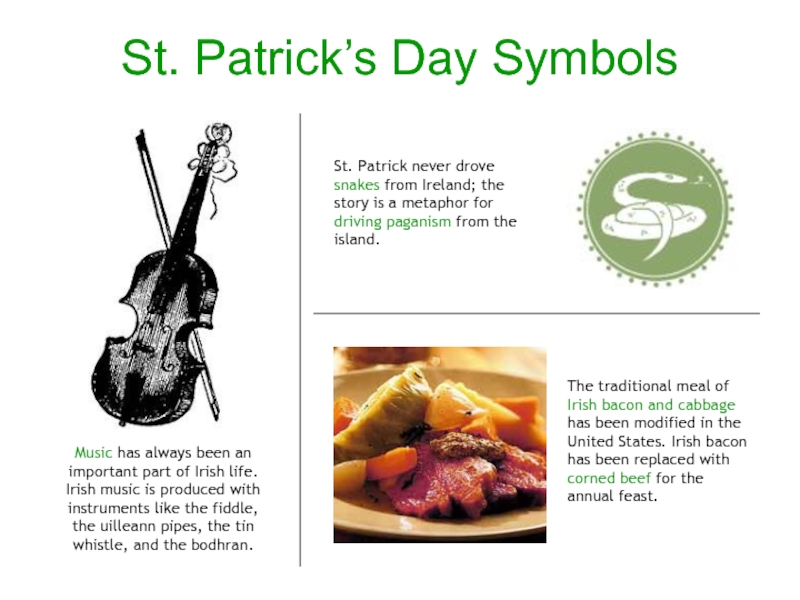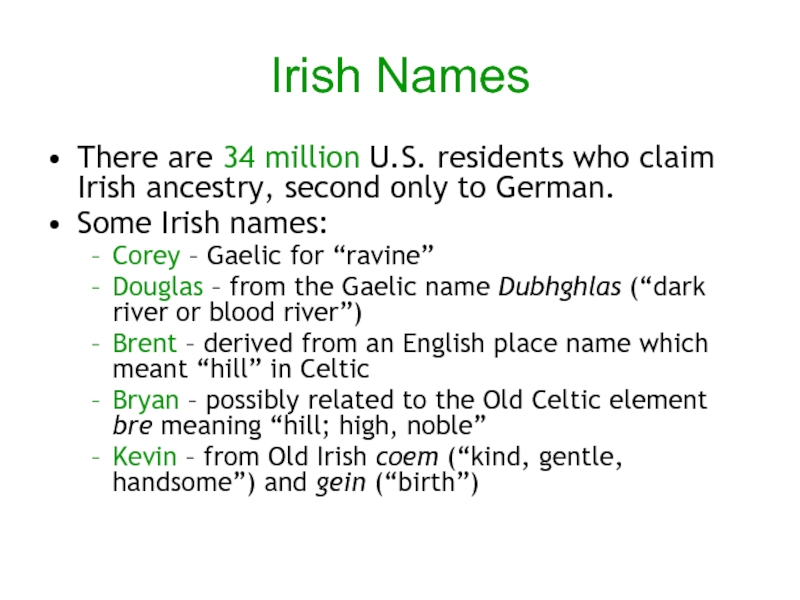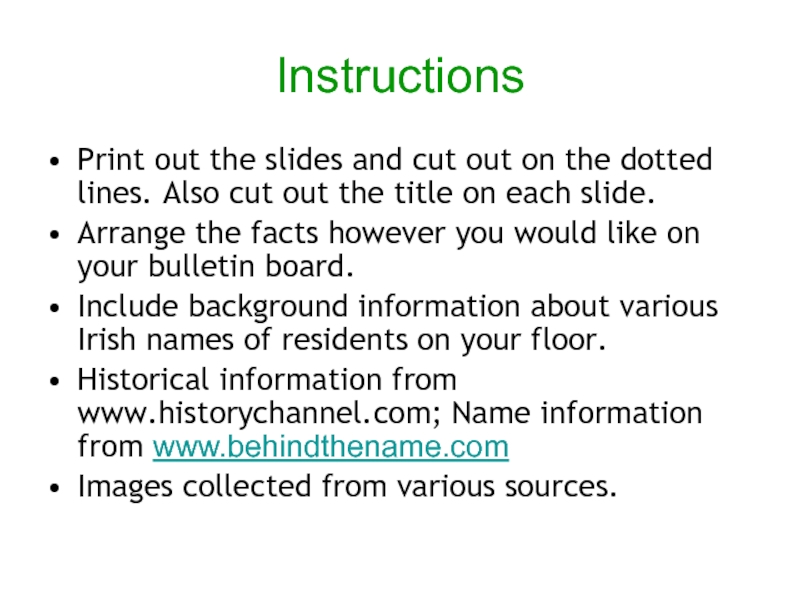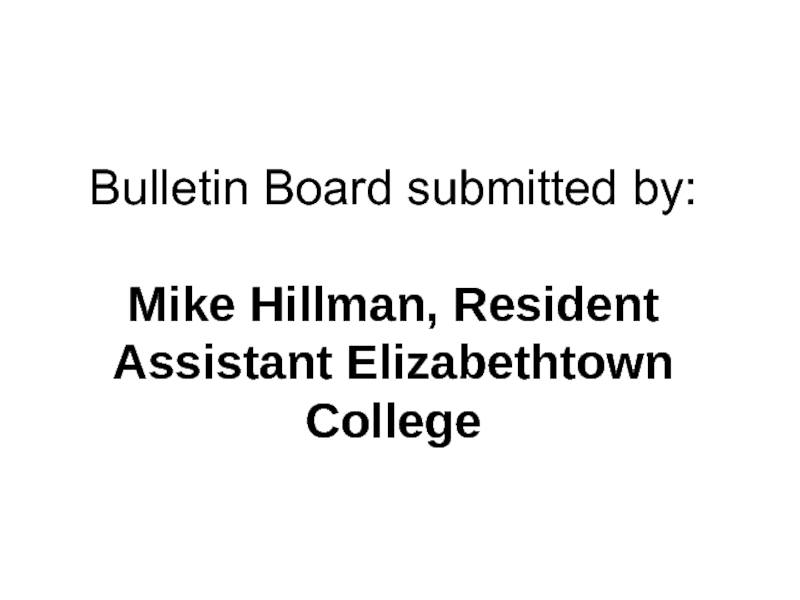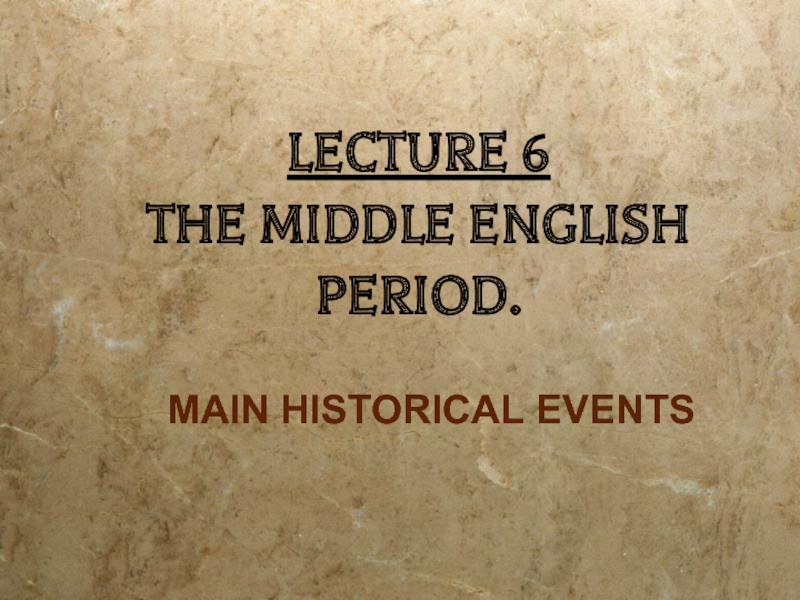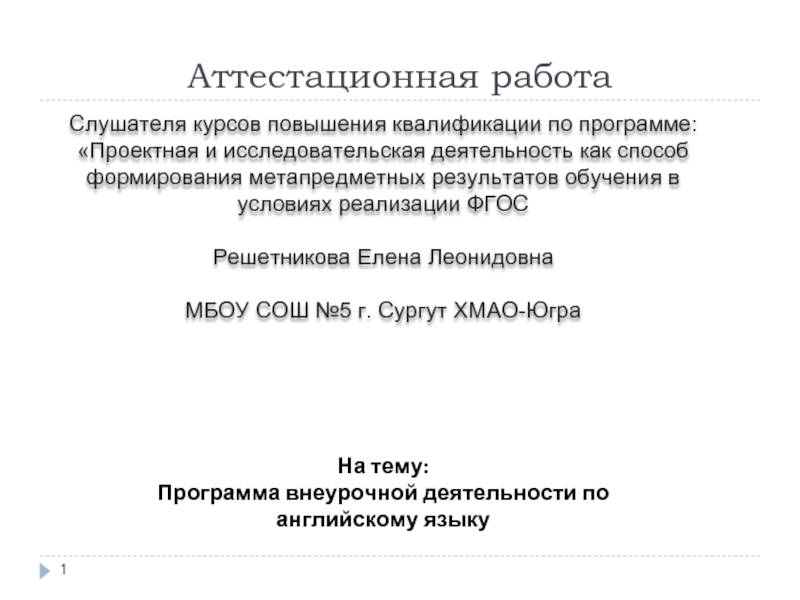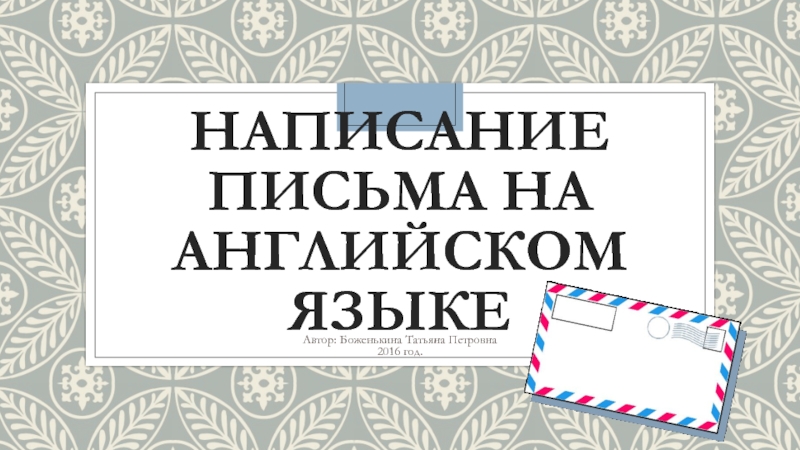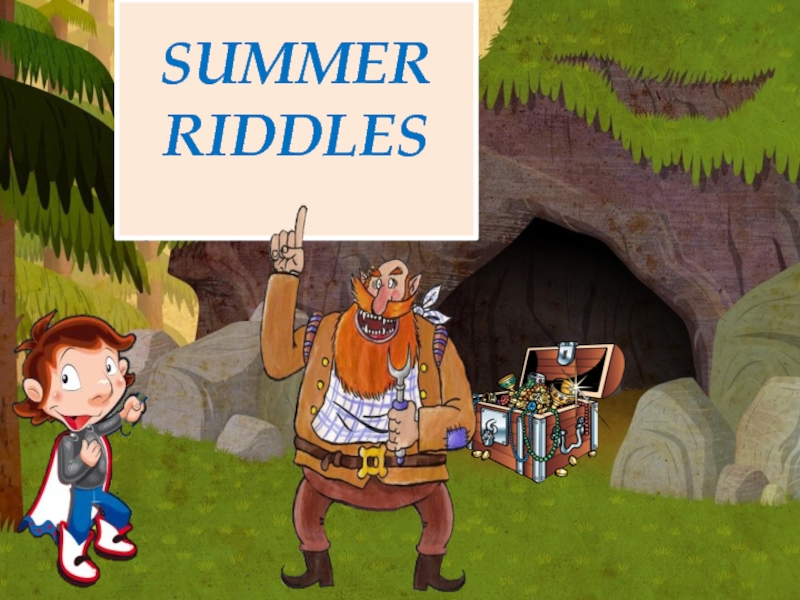- Главная
- Разное
- Дизайн
- Бизнес и предпринимательство
- Аналитика
- Образование
- Развлечения
- Красота и здоровье
- Финансы
- Государство
- Путешествия
- Спорт
- Недвижимость
- Армия
- Графика
- Культурология
- Еда и кулинария
- Лингвистика
- Английский язык
- Астрономия
- Алгебра
- Биология
- География
- Детские презентации
- Информатика
- История
- Литература
- Маркетинг
- Математика
- Медицина
- Менеджмент
- Музыка
- МХК
- Немецкий язык
- ОБЖ
- Обществознание
- Окружающий мир
- Педагогика
- Русский язык
- Технология
- Физика
- Философия
- Химия
- Шаблоны, картинки для презентаций
- Экология
- Экономика
- Юриспруденция
St. Patrick’s Day. History and traditions презентация
Содержание
- 1. St. Patrick’s Day. History and traditions
- 2. Who was St. Patrick? St. Patrick is
- 3. St. Patrick’s Day Traditions Christians attend church
- 4. St. Patrick’s Day Symbols The Celtic Cross
- 5. St. Patrick’s Day Symbols Music has always
- 6. Irish Names There are 34 million U.S.
- 7. Instructions Print out the slides and cut
- 8. Bulletin Board submitted by: Mike Hillman, Resident Assistant Elizabethtown College
Слайд 2Who was St. Patrick?
St. Patrick is the patron saint of Ireland.
He
St. Patrick incorporated traditional Celtic symbols, like the bonfire and the sun, into his Christian teachings.
St. Patrick died on March 17, circa 462.
St. Patrick’s Day is the saint’s feast day and has evolved from a religious holiday to a worldwide celebration.
Слайд 3St. Patrick’s Day Traditions
Christians attend church in the morning and celebrate
The rules of Lent are waived and revelers traditionally eat Irish bacon and cabbage.
The first St. Patty’s Day parade occurred when Irish soldiers in the British army marched through New York City on March 17, 1762.
The Chicago River has been dyed green every year since 1962.
Слайд 4St. Patrick’s Day Symbols
The Celtic Cross – a sun (from the
The shamrock, or “seamroy,” symbolizes the rebirth of spring. It was later adopted as a symbol of Irish nationalism.
The leprechaun, or “lobaircin” was a cranky, “small-bodied fellow” of Celtic folklore, given its “cute” features and popularized in the United States by Walt Disney.
Слайд 5St. Patrick’s Day Symbols
Music has always been an important part of
St. Patrick never drove snakes from Ireland; the story is a metaphor for driving paganism from the island.
The traditional meal of Irish bacon and cabbage has been modified in the United States. Irish bacon has been replaced with corned beef for the annual feast.
Слайд 6Irish Names
There are 34 million U.S. residents who claim Irish ancestry,
Some Irish names:
Corey – Gaelic for “ravine”
Douglas – from the Gaelic name Dubhghlas (“dark river or blood river”)
Brent – derived from an English place name which meant “hill” in Celtic
Bryan – possibly related to the Old Celtic element bre meaning “hill; high, noble”
Kevin – from Old Irish coem (“kind, gentle, handsome”) and gein (“birth”)
Слайд 7Instructions
Print out the slides and cut out on the dotted lines.
Arrange the facts however you would like on your bulletin board.
Include background information about various Irish names of residents on your floor.
Historical information from www.historychannel.com; Name information from www.behindthename.com
Images collected from various sources.
